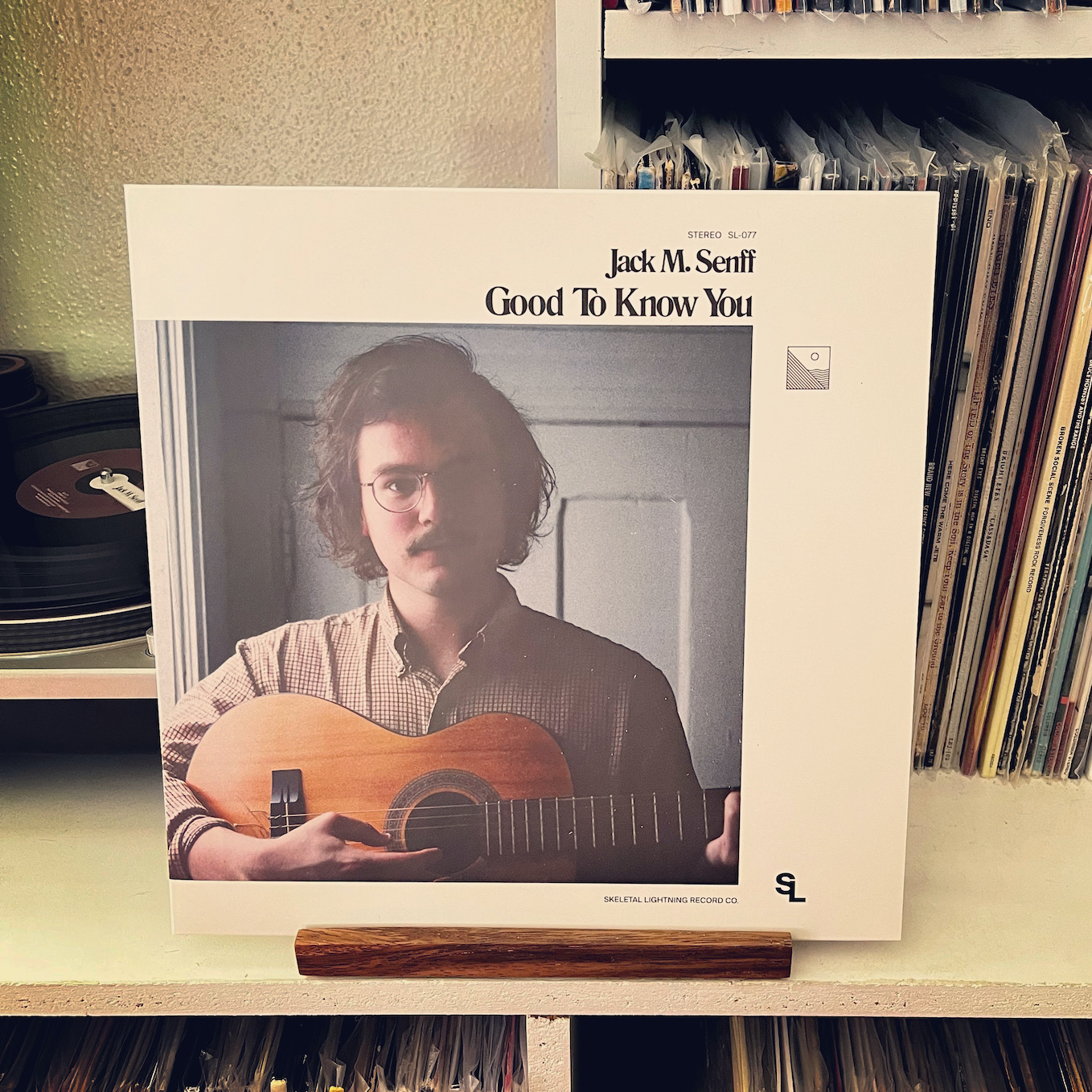
Allow me to introduce you to my friend Jack.
Around thirteen years ago, I met Jack as part of a group of local artists, musicians, and poets trying to build a more substantial creative community here in South Bend. I’m not sure how old he was at the time—in my mind, he couldn’t have been older than fifteen, always dressed like someone’s dad in ragged sweaters and giant glasses. At that point, his band Merchant Ships had already broken up, so when I found out a few years later that they had a pretty decent following online, it messed with my brain a bit.
In the years since, he’s helmed a number of projects, from William Bonney to Knola to Midwest Pen Pals, all offering various shades of intense emo. That is, until he took on the moniker of Boy Rex which offered a more intimate brand of folk rock. So intimate in fact that after a few releases, he felt it was more genuine to go by his given name instead.
And while this, his first record billed as Jack M. Senff, is a for all practical purposes a continuation of the Boy Rex project, there’s another level of introspection that can’t be explained entirely by the name change.
For all of Boy Rex’s stripped-down folk palette, there was a buoyant exuberance that lifted his ultra-personal songwriting that sometimes weighs down that sort of perspective. And while there are certainly fewer peps in this record’s steps, it’s no Mount Eerie. Instead, it calls to mind the sensitive songwriters of 70s pop rock (see: James Taylor, Cat Stevens, Joni Mitchell) filtered through a distinct indie rock sensibility a la Death Cab For Cutie’s Ben Gibbard.
The results are infectious and charming, allowing Jack’s songwriting to shine through without the distractions of hip-twitching drum patterns or joyful trumpet lines. When the songs are given the full band treatment, it’s still subdued, like “Full Decay” with its brushed drums and slide lead guitar. Even the “catchy” single “Old Days” with a retro organ and tambourine just barely edges out the bittersweetness of lines like, “I had a dream too big to lose, no matter who got left in the rearview.”
And maybe it’s just that most of my time with Jack as a person has been spent in house shows and DIY music festivals and crammed punk basements, but this phase of his career is what feels the most like Jack to me: soft-spoken, humble, and carefully balanced between nostalgia and hopefulness. And that is someone that’s (ahem) good to know.